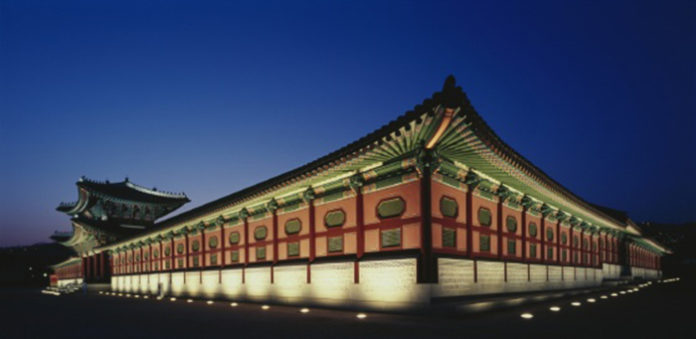(Media1=William Harlow) Korea is a great place to visit. It is modern with a great blend of history, natural beauty, and a wide variety of interesting activities. However, Korea needs to cope with changing the view many foreigners have of it by redefining the pre and post 1988 Olympic views. Korea before the Olympics was a shopper’s paradise for people looking for cut rate knock-offs, inexpensive food and drink, and an exotic location rarely visited by tourists.
Korea today has lost much of its earlier charm with a Baskin Robbins or Starbucks every block. Even the shopping has changed. The major shopping centers sell the “real deal” designer and high quality goods; however, the prices are no better than you would get in New York, London, or Paris. So how does Korea sell its modern self to tourists longing for yesteryear or not knowing what modern Korea has to offer?
First, Korea needs to sell itself as the crossroads of North East Asia. For thousands of years Korea has formed the cultural bridge between China and Japan and though it has a unique culture of its own it has also been greatly influenced by these two countries. This cultural bridge makes Korea a unique experience. The Korean Government has spent a small fortune restoring its cultural treasures. The museums in Korea are first rate and inexpensive. Palaces, temples, old castles, and tombs have been meticulously restored and are great places to visit.
Still, I can only go to so many temples and museums before I become weary of them. So you can then enjoy some of the adventure tourism Korea has to offer. White water rafting, zip lining, skiing, hiking, mountain climbing are but a few of the activities available. Or combine hiking and cultural tourism by hiking the ancient walls of Seoul or Suwon. These activities are the perfect way to enjoy Korea’s natural beauty.

After a hard day of touring, you can enjoy the cuisine and nightlife available in most major Korean cities. Korean food is excellent; however, you need to work your way into many of the spicier or exotic dishes. I love Bulgoki, Kalbi, and other forms of Korean Barbeque. The hot soups are also excellent. I’m not to keen on Octopus (Nakji) or other more exotic seafood. There are also plenty of Chinese, Japanese (cultural bridge) and western style restaurants. Going to a No Rae Bang or singing room is a favorite pastime. This is basically karaoke in a private room. There are plenty of songs in English, Japanese, and Korean programmed into the karaoke machines and it is a relatively inexpensive way to spend and evening with friends. Some other ways to spend the evening include going to nightclubs that have variety entertainment (this can be pricey), or just go to a beer and chicken Hof and have beer, chicken, and fries with some friends.
The key for tourist to enjoy Korea; however, is to capitalize on the great mass transportation system available. You can get around the country inexpensively using the vast array of trains, subways, busses, and taxi’s available. While the highways system is modern and extensive, I would not recommend driving a rental car due the congestion and difficulty parking in most urban areas.
Korea’s role as a bridge between cultures also gives it an ideal location for touring Northeast Asia and the Northern Pacific Islands. Within five hours of Incheon are China, Japan, Guam and the Marianas, Palau, The Philippines, Hong Kong, Taiwan, Southeast Asia, and many other great destinations. Korea is a great hub to visit these and other locations.
Many Korean tour companies offer inexpensive tours to these and other locations and can do it much less expensively than you can do it on your own. The only drawbacks to these tours are the limited speaking of English or other foreign languages, Korean food served throughout the tour and your responsibility for visa depending on the rules that apply to the country that issued you your passport. (Tour companies are set up for Korean passports and sometimes have concerns over travelers using non-Korean travel documents.) Still, most countries have embassies or counsels in Seoul and it is relatively easy to get the visas you may need if you have the time. Check with your countries foreign office for your particular requirements.
What can Korean travel companies do to increase the number of foreign tourists interested in their services? First, consider bilingual advertisements. Have a few lines in English or other targeted language and list contact number for bilingual sales representative. Have prominent translation bars on your web sites or have bilingual links to allow prospective clients to read them. Offer specialized tours for foreign visitors.
Second, consider the cultural sensitivities of your guests. If you have a tour group full of foreigners, they definitely want to try Korean cuisine, however, start them off slow. Get some Kalbi for the first meal. Don’t start them off with spicy hot Octopus and wonder why they don’t like Korean food. Don’t schedule just Korean food for a long tour. I remember going to Hong Do and other islands in the Yellow Sea just west of Mokpo. The food was good, but every meal was fish and rice. After four days, we returned to Mokpo and I immediate went to MacDonald’s.
Third, have city tours available that will not only show the key sites of the city, but also teach the traveler how to get around on their own. Use the subway for some of the tour. Explaining what stations take them to great locations; show them how to get a travel card and reload it with money, how to make transfers and bus connections, will make the traveler more independent and give them a better feeling for their time in Korea. It will also capitalize on one of Korea’s great post Olympic strengths, its great transportation system. Explain the money and tipping and other ways to improve their Korean experience.
Lastly, have a native speaker review any bilingual publications, signs, or directions to make sure they make sense. Signs that are direct work for word translations often don’t make any sense and can confuse the traveler.
Korea is a great place to visit for either business or pleasure, however, people expecting the pre-Olympic Korea of MASH need to be reeducated to the modern reality of post Olympic Korea. There is much to see and do and the Korean market can expand the number of foreign visitors is they tailor some of their travel industry to more closely align to the cultural sensibilities of these foreign travelers.
Written by Mr. Willian C. Harlow The military and economic historian
who specializes in U.S history in Asia during the last half of the 19th century




![[기획시리즈 | 한국사회와 노인] ② 창업이 아니라 추락이었다](https://media1.or.kr/wp-content/uploads/2025/06/A꾸미기85c7f0e2-cc2b-466a-b0f4-467a3300eb10-100x70.jpg)





